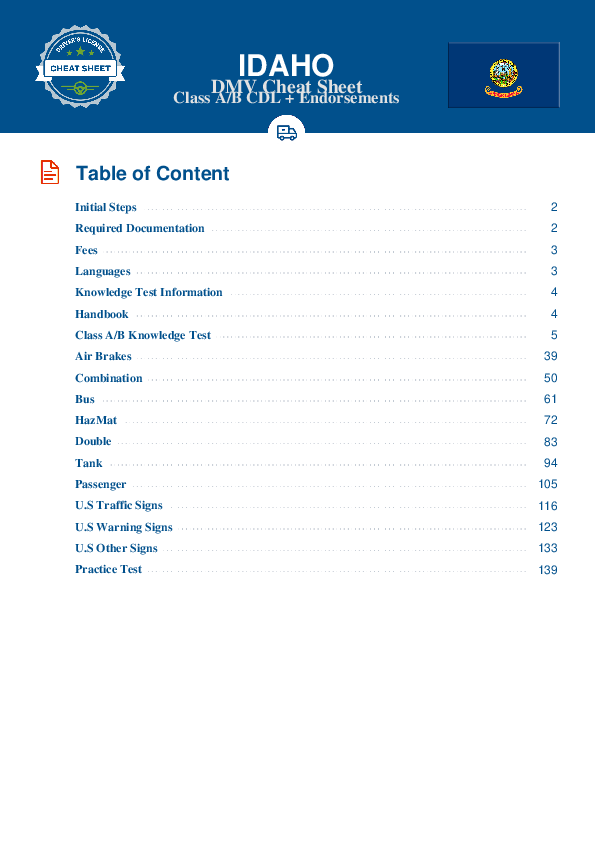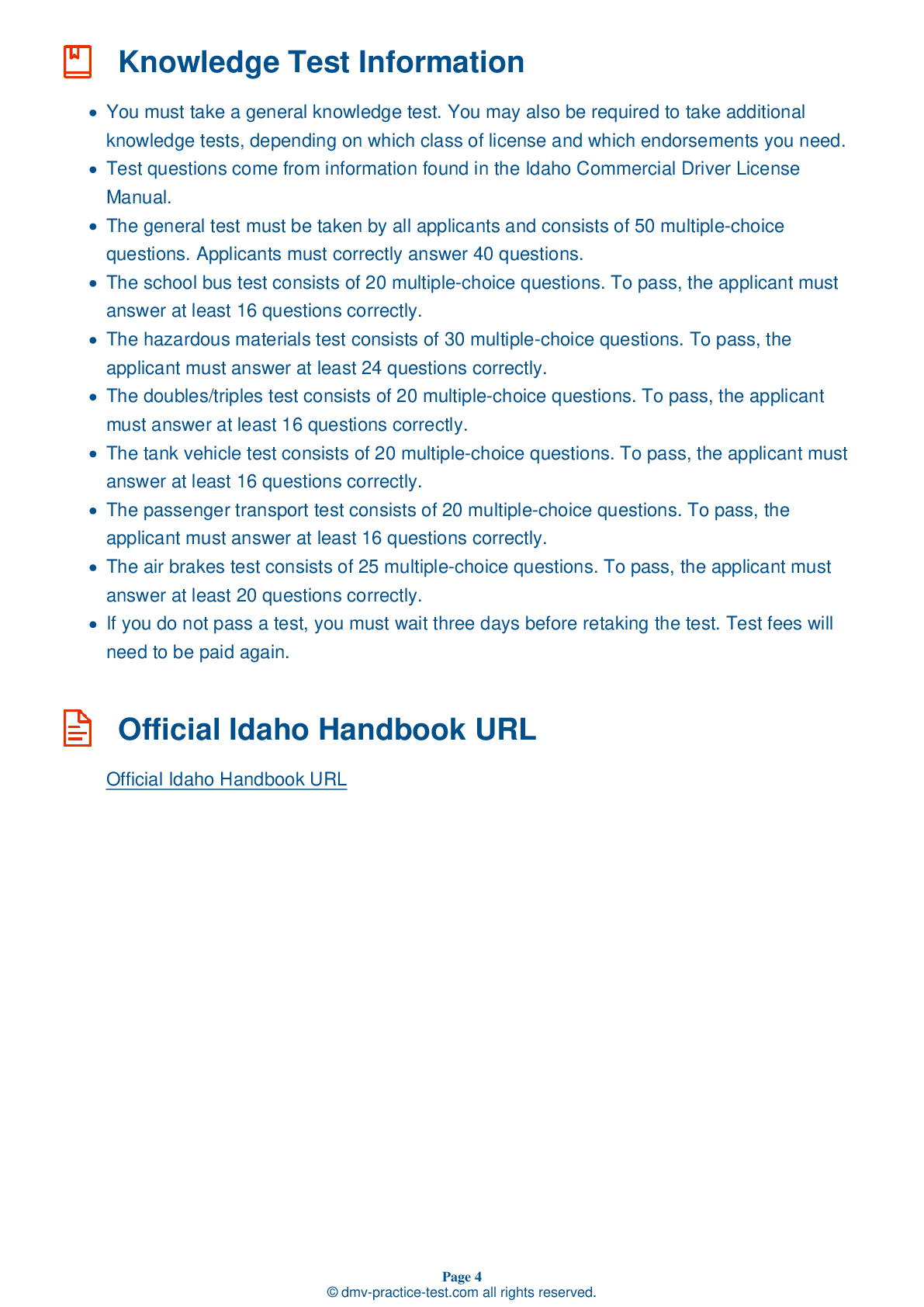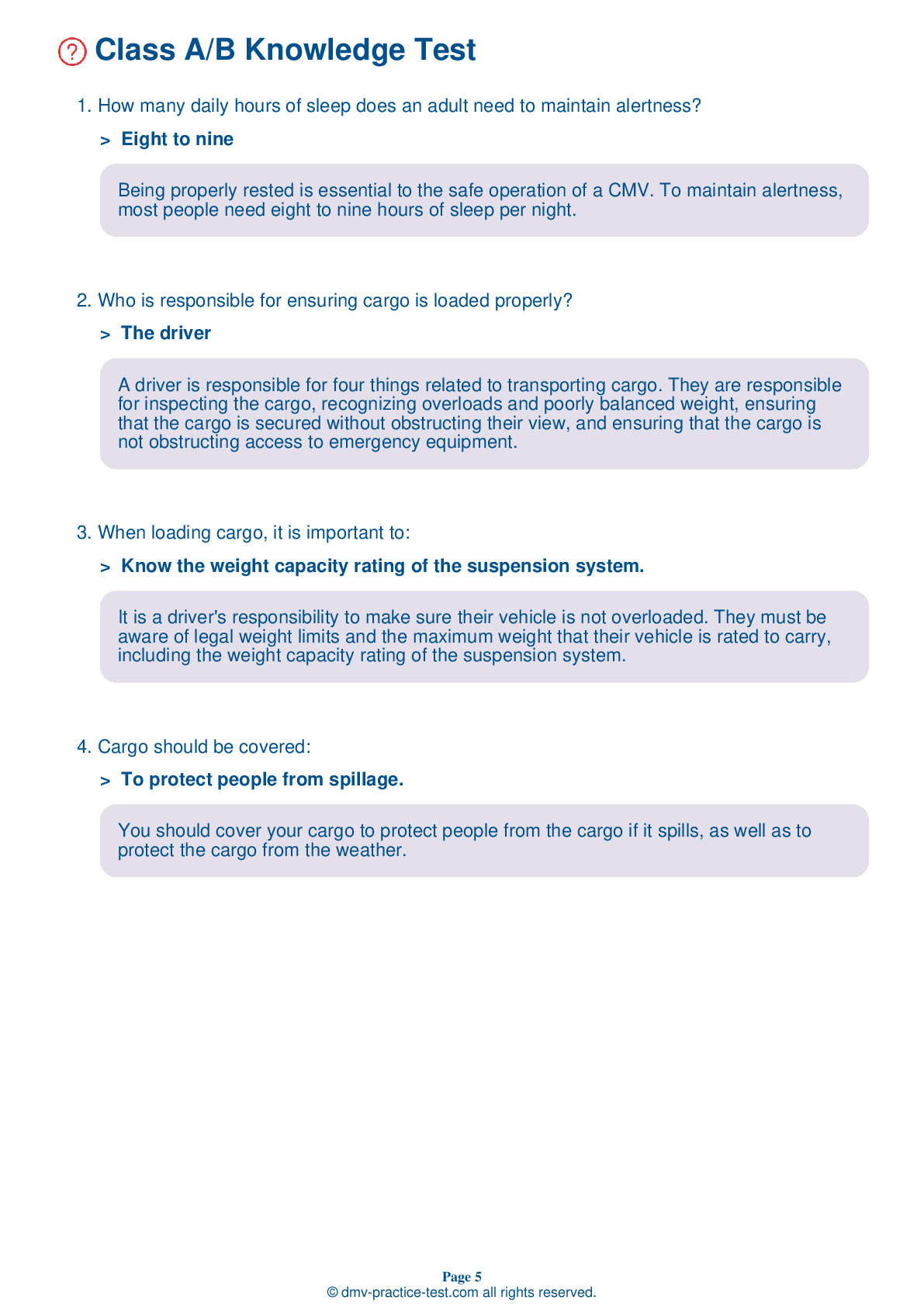Passenger #1
Passenger Endorsement | Idaho 2026 #1
Train for FREE with our Idaho CDL passenger endorsement practice test online. The official exam test consists of several obligatory parts, with all of them checking your knowledge of different blocks of road rules. If you need to obtain a ID DMV passenger endorsement in 2026, practice as much as possible. Free sample tests published on our website will help you check and improve your knowledge and boost your grades. Please bear in mind that DMV requirements for issuing a CDL permit with passenger endorsement may vary from state to state.
20
16
20
1 . Traction is important in:
You will not be able to brake or steer your vehicle without adequate traction. Ensure that your tires are in proper working condition before beginning a trip.
2 . If driving so slowly that you could impede the flow of traffic, you should:
If you must drive so slowly that you will impede the flow of traffic, you should turn on your four-way flashers to alert drivers behind you (as long as local laws allow the use of flashers).
3 . Rust around wheel nuts may mean:
Rust around wheel nuts can indicate that the nuts are loose. If you find rust near the wheel nuts, check their tightness before beginning to drive.
4 . Improperly loaded cargo can:
Improperly secured or loaded cargo can be very dangerous. For example, loose cargo could fall in the event of a sudden stop, potentially injuring or even killing the driver.
5 . How many daily hours of sleep does an adult need to maintain alertness?
Four to five



